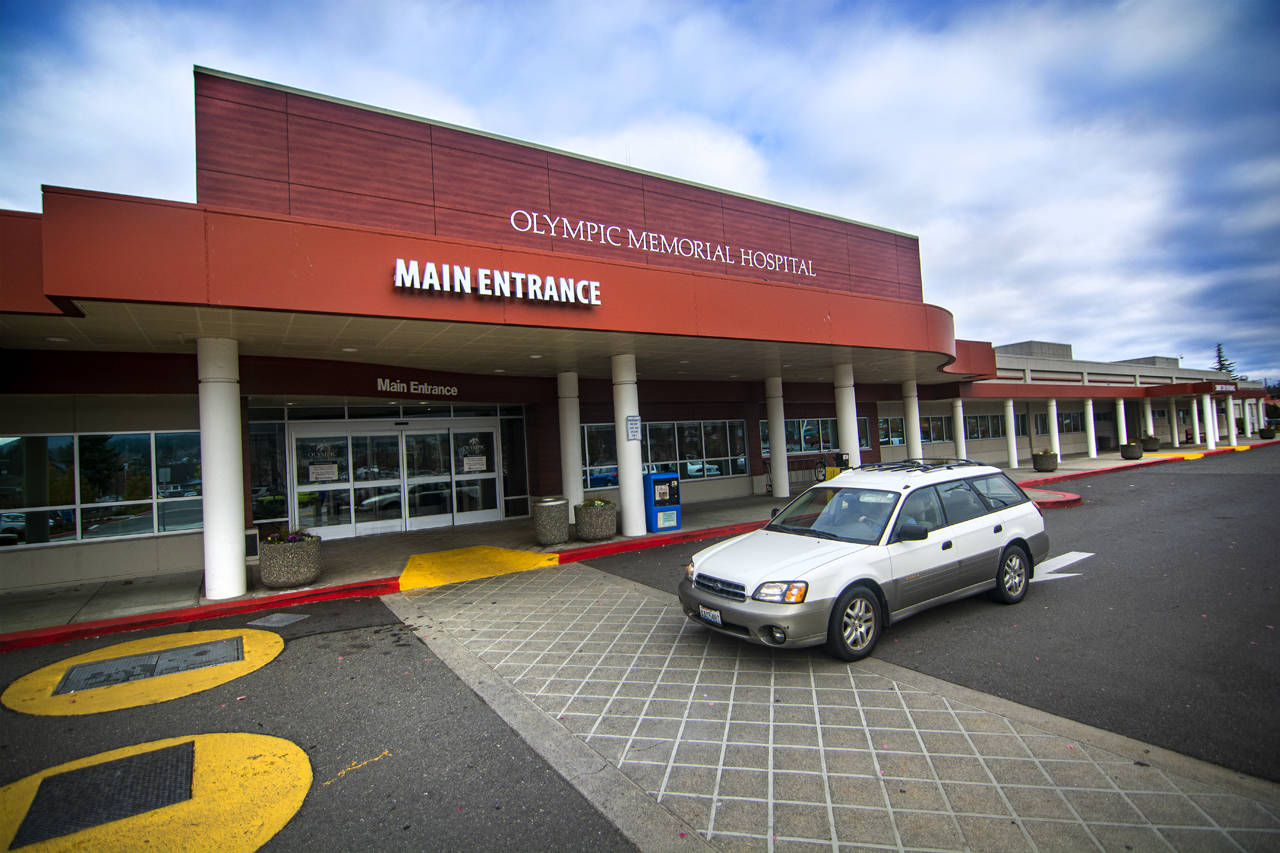When a federal judge threw out a Trump administration rule that had cut $1.7 million from Olympic Medical Center’s budget, the government decided to double down.
Last November, the federal Centers for Medicare and Medicaid Services (CMS) implemented a site-neutral rule, meaning Medicare reimbursements at clinics more than 250 yards away from a hospital’s main campus were cut by 30 percent.
In an effort to cut “unnecessary” spending the government decided Nov. 1 to slash payments by another 30 percent, despite a judge siding with Olympic Medical Center and dozens of other hospitals by ruling the government exceeded its authority by cutting the first 30 percent.
“We’re very disapointed and we think it’s the wrong direction, but we’re not surprised,” said OMC CEO Eric Lewis.
It was so unsurprising that the federal government would ignore the court’s decision that OMC’s 2020 budget, which will be presented during a 12:30 p.m. hearing Nov. 6 at the hospital, anticipates the 60 percent cuts.
“In the 2020 budget that we’ve been working on since August, we planned for these cuts to move forward,” Lewis said. “We fully anticipated the cuts happening.”
Olympic Medical Center became a named plaintiff in the American Hospital Association’s lawsuit against the federal government earlier this year, and successfully argued that CMS did not have the authority to implement a “site neutral” rule.
The government is expected to appeal.
Jennifer Burkhardt, OMC chief human resources officer and general counsel, said that for now the hospitals must wait to see if CMS files its appeal.
The government has 60 days from the Oct. 21 rejection of its motion to reconsider to file the appeal, she said.
“We have a final ruling right now from the district court saying all 60 percent of the cut was illegal,” Burkhardt said. “We have communicated to the Department of Justice that we absolutely oppose the second round of cuts and that they should be paying us back for the 30 percent.”
That ruling was that “the Court finds that CMS exceeded its statutory authority when it cut the payment rate for clinic services at off-campus provider-based clinics.”
The policy, which threatens to cost OMC more than $47 million in lost revenue over the next decade, led to Olympic Medical Center halting expansion of primary care in Sequim.
Lewis said OMC is budgeting to complete the expansion of the cancer center next year and, despite the cuts, plans to add three exam rooms for primary care.
“We have planned for this and we will be maintaining all services that we have in the Sequim campus and all throughout OMC,” Lewis said.
“We’re going to maintain physician clinics in Sequim and continue to position for growth.”
He said the hospital also is planning for the next expansion of the cancer center, which will include radiation oncology.
To offset some of the costs, OMC has moved services at the Eighth and Vine streets clinic in Port Angeles to the hospital’s main campus.
“(Friday’s) final rule from CMS regrettably ignores recent legal decision while also putting even more pressure on hospitals and health systems that care for vulnerable patients and communities,” said American Hospital Association Executive Vice President Tom Nickels in a statement.
He said the rule “not only threatens access to care, especially in rural and other vulnerable communities, but it goes against clear congressional intent to protect the majority of clinic services.”
In a statement, Health and Human Services Secretary Alex Azar said the rule helps to “fulfill President Trump’s promise to protect and strengthen Medicare.”
“American patients deserve a system that treats them like a person, not a number,” Azar continued. “That means helping patients receive care in affordable, appropriate settings, which is the goal we are working toward through site-neutral payment policies.”
The government estimates the move will save taxpayers $800 million next year.
“We acknowledge that the United States District Court for the District of Columbia vacated the volume control policy for … and we are working to ensure affected 2019 claims for clinic visits are paid consistent with the court’s order,” according to a CMS fact sheet published Nov. 1.
“We do not believe it is appropriate at this time to make a change to the second year of the two-year phase-in of the clinic visit policy. The government has appeal rights, and is still evaluating the rulings and considering, at the time of this writing, whether to appeal from the final judgment.”
On Monday, U.S. Rep. Derek Kilmer said it is “outrageous that the Administration is choosing to ignore recent court decisions that clearly rule CMS is overstepping its authority and is instead doubling down on this policy.”
Kilmer, who was born at Olympic Medical Center, has introduced bipartisan legislation that would stop the policy.
“This will hurt access to care in rural regions and kill jobs in rural communities,” Kilmer said. “I’ll keep fighting to ensure health care is accessible to folks in our community.”



